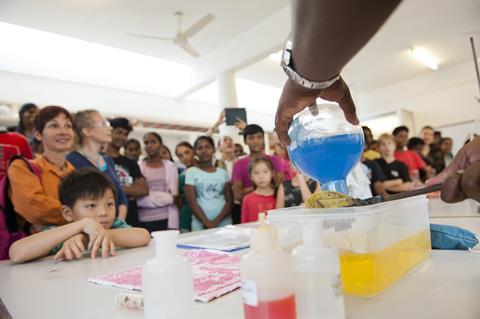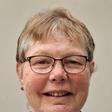Pupils with additional learning needs should be welcome at any chemistry event. However, barriers to their attendance are more than just logistical, says Jane Essex
I have had the pleasure of running chemistry outreach events for learners with special educational needs for the last 14 years. However, I continue to question the need for them. Surely the UK Equality Act 2010 sets the expectation we should routinely make the necessary adjustments to ensure all pupils can take part in any event?
When I first agreed to set up a ‘special’ chemistry day it was on logistical grounds at the request of local special schools. Some children needed a different day to those already on offer to accommodate time for medical interventions. Some schools also needed to send different numbers of staff and children. Nevertheless, I have found most of the adjustments needed are minor, such as reducing literacy demands, and involve a shift in attitude rather than expensive adaptive equipment.
Pupils with special educational needs and disability (SEND) should, in theory, be welcome at chemistry events. However, several additional factors beside the perceived logistical ones prevent them attending. The first is that staff working with SEND pupils are often not science teachers, so do not know about events available. Even if those staff are in a school setting where there are science teachers, they may not be told about opportunities for science enrichment.
My conversations over the years revealed another important factor – many science colleagues in mainstream schools were automatically selecting from their most able and, in learning terms, least diverse pupils to attend. Others weren’t even being considered.
I wondered why some pupils weren’t being considered for attending events unless those events were specifically marketed for pupils with special needs. So, over two years I asked teachers bringing pupils to science outreach days to complete a questionnaire about why they brought them and how they perceived science opportunities for their pupils.
Science is still seen as a means to career progression for the able, rather than as an educational and cultural entitlement for all
There was a consensus among all the respondents that science was beneficial and all pupils should study it. However, the reasons for attending outreach events was markedly different for those attending ‘regular’ events and those attending ‘special’ inclusive events. Regular event attendees sought challenge and the chance to learn additional science, to extend science capital for their pupils. In contrast, staff at the inclusive events were looking to strengthen pastoral relationships, to provide interesting and exciting experiences and to develop students’ functional skills. A minority of staff brought pupils because there was no laboratory provision in their alternative educational setting and they did not know how to do practical science in a non-laboratory setting.

The staff at inclusive events did not view the event as a prelude to their students’ specialisation in science (and did not know of any former pupils who were using science in their adult lives). The enthusiastic and capable young learners I have met through these events were not seen as future scientists, on account of their educational identity. In contrast, staff bringing pupils to the regular events could give examples of how pupils had used science to progress into a range of careers. These findings combine to suggest that educators’ thinking about science education has not moved far from the 1950s notion of the Sputnik curriculum, which promoted science and technology as the means to achieve military and economic supremacy. Science is still seen as a means to career progression for the able, rather than as an educational and cultural entitlement for all.
The staff at inclusive events were also, to my surprise, more keen that separate science events were held for SEND pupils, to protect them from failure in a difficult subject and the associated public ‘humiliation’. Even if they knew about other events, they would not take their pupils to events that did not signal accommodation of additional needs, despite legal requirements of service providers to do this. Additionally, staff feedback from inclusive events frequently commends outreach providers specifically for their kindness, not something we see at regular events. The emphasis on protection, dignity and humane treatment recalls the 19th century notion of asylum, where atypical individuals could be protected from the harsh judgement of the outside world.
The Royal Society of Chemistry rightly concerns itself with the question of how well the community of chemists represents society more broadly. We are now recognising the damage done to recruitment by perceptions of science only being for the brainy. If we could give the full range of learners a meaningful experience of science, it would challenge the notion that it is reserved for a privileged elite. Outreach and community events offer an amazing chance to bring rich experiences of chemistry to a complete cross-section of society. Let’s seize that opportunity and signal that we are open to all.
Jane Essex is a lecturer in chemistry education at the University of Strathclyde














1 Reader's comment